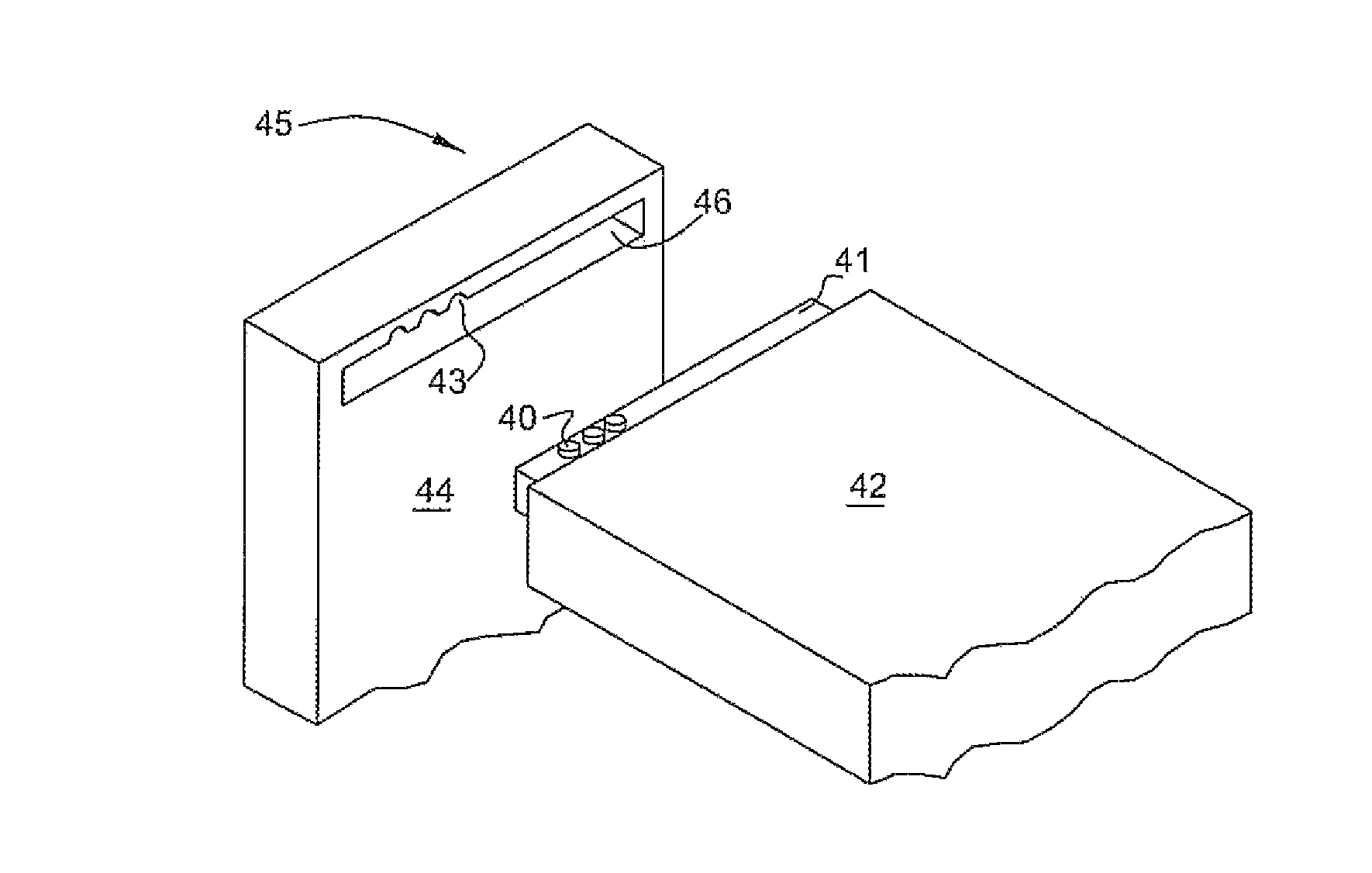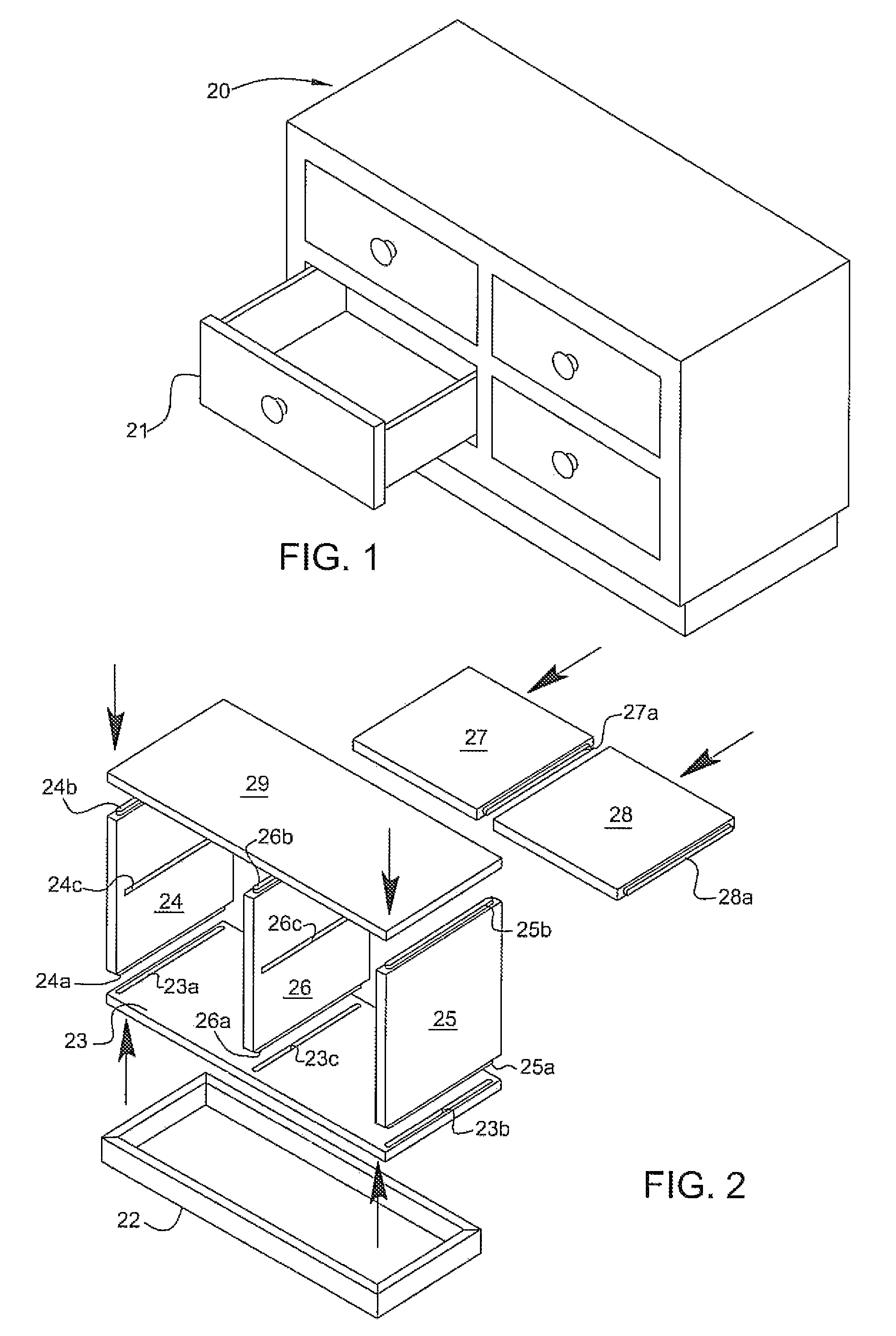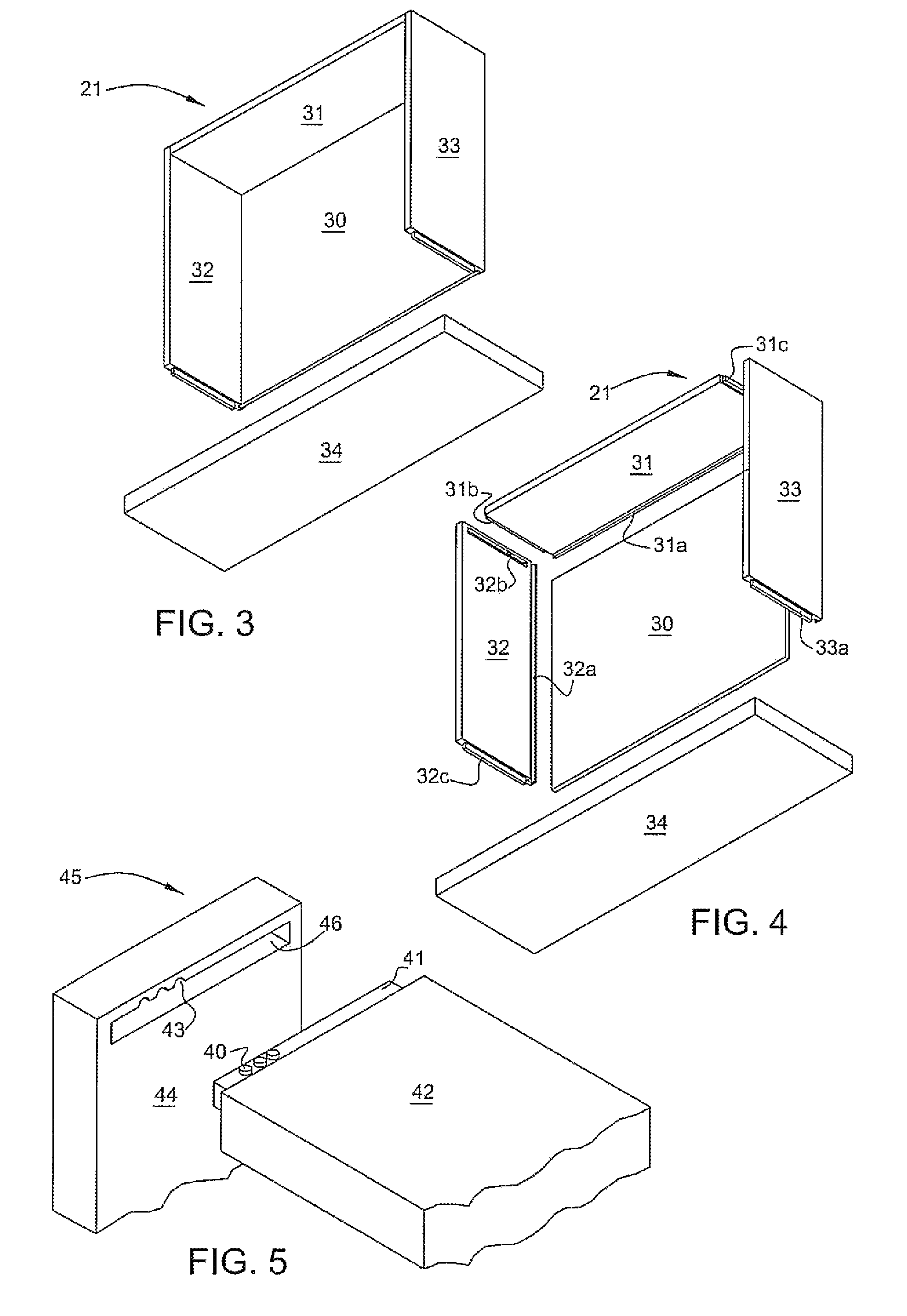Structure and method of assembly thereof
a technology of structure and assembly method, applied in the direction of wood veneer joining, dismountable cabinets, manufacturing tools, etc., can solve the problems of reduced productivity, difficult and confusing process, and substantial time and mental effor
- Summary
- Abstract
- Description
- Claims
- Application Information
AI Technical Summary
Benefits of technology
Problems solved by technology
Method used
Image
Examples
Embodiment Construction
[0018]Referring to FIG. 1 of the drawings, there is illustrated a cabinet 20 provided with a set of drawers 21, assembled with the component workpieces shown in FIGS. 2 through 4, in accordance with the present invention. As shown in FIG. 2, the component pieces of the cabinet include a rectangular base 22, a bottom panel 23, a pair of side panels 24 and 25, a partition panel 26, a pair of shelf panels 27 and 28 and a top panel 29. As shown in FIGS. 3 and 4, each drawer 21 is comprised of a bottom panel 30, a rear panel 31, a pair of side panels 32 and 33 and a front panel 34.
[0019]The component panels as described are secured together by means of a mortise formed in one piece and either a side edge or tenon of an adjoining piece being received in such mortise and secured by gluing. With respect to the cabinet, bottom panel 23 is provided mortises 23a and 23b adjacent the side edges thereof, and a center mortise 23c. Side panel 24 is provided with a lower edge tenon 24a insertable i...
PUM
| Property | Measurement | Unit |
|---|---|---|
| lengths | aaaaa | aaaaa |
| lengths | aaaaa | aaaaa |
| lengths | aaaaa | aaaaa |
Abstract
Description
Claims
Application Information
 Login to View More
Login to View More - R&D
- Intellectual Property
- Life Sciences
- Materials
- Tech Scout
- Unparalleled Data Quality
- Higher Quality Content
- 60% Fewer Hallucinations
Browse by: Latest US Patents, China's latest patents, Technical Efficacy Thesaurus, Application Domain, Technology Topic, Popular Technical Reports.
© 2025 PatSnap. All rights reserved.Legal|Privacy policy|Modern Slavery Act Transparency Statement|Sitemap|About US| Contact US: help@patsnap.com



